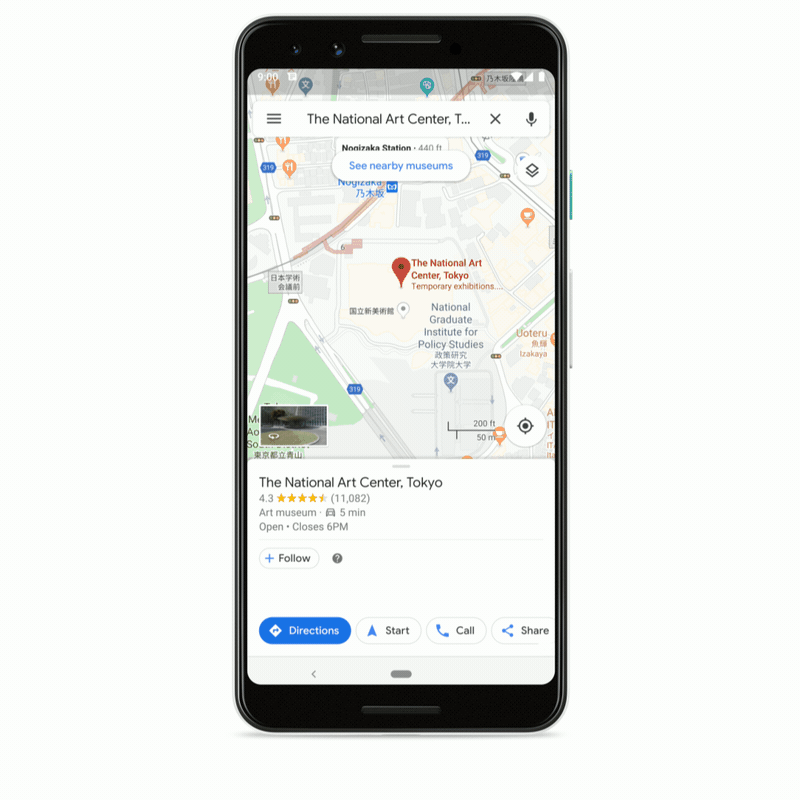
When traveling abroad, mapping and translation are likely your two most-used apps. Google is now integrating Maps and Translate “closer together” with a new translator feature that pronounces place names and addresses.
Listings in Maps will soon feature a blue speaker icon just underneath the location. Tapping opens a “Listen in…” panel that can pronounce the name or address of a place you want to visit.
Meanwhile, the bottom of this panel has a “Get more translations” shortcut that opens the full Google Translate app. This could be useful for a saying “thank you” to someone that just helped you.
The foreign language is automatically selected, with your device’s default and the location taken into consideration.
This text-to-speech technology automatically detects what language your phone is using to determine which places you might need help translating. For instance, if your phone is set to English and you’re looking at a place of interest in Tokyo, you’ll see the new speaker icon next to the place’s name and address so you can get a real-time translation.
This Google Maps Translate pronunciation feature is rolling out over the next month. The integration should help reduce the number of times you manually copy-paste text and move between apps. Available on Android and iOS, 50 languages will be supported at first with “more on the way.”

More about Google Maps:
- Google Maps adds ability to manage your public profile within the app
- Maps for Android adds carousel of search shortcuts
- [Update: Rolling out] Google Maps incognito mode comes to Android this month, iOS ‘soon’
Check out 9to5Google on YouTube for more news:
Author: Abner Li
Source: 9TO5Google



